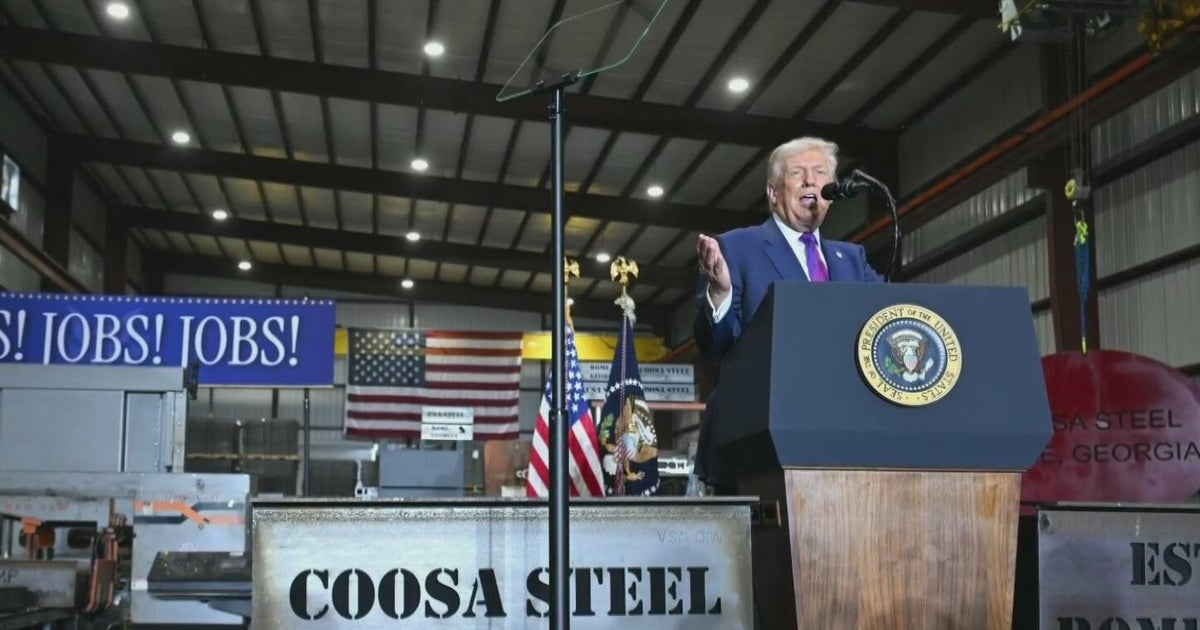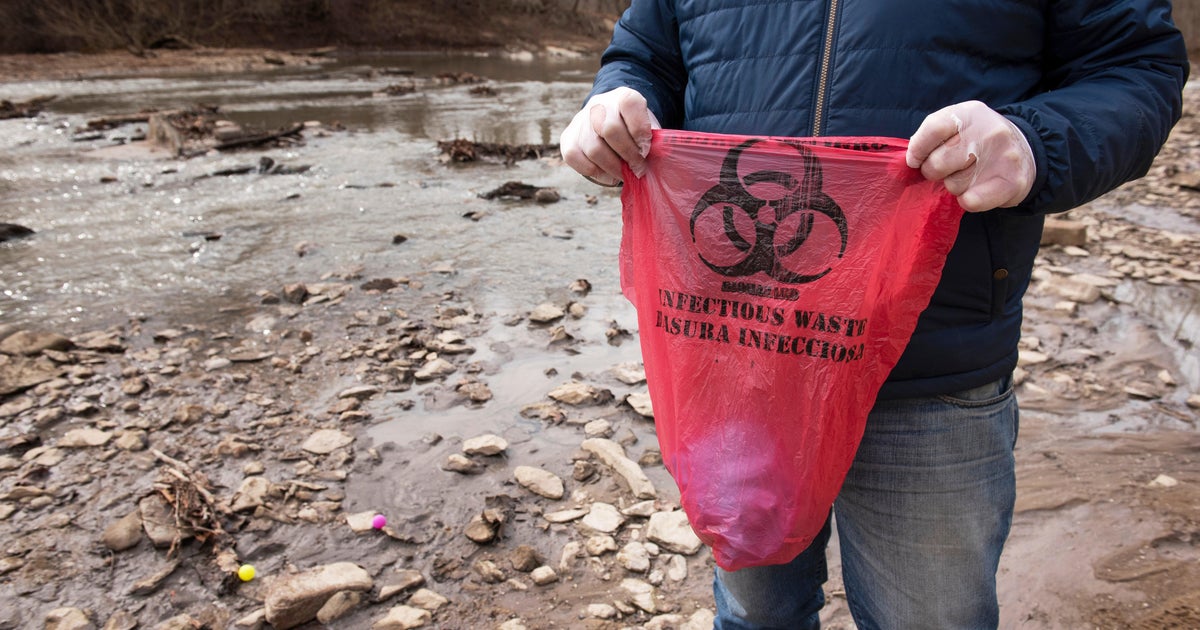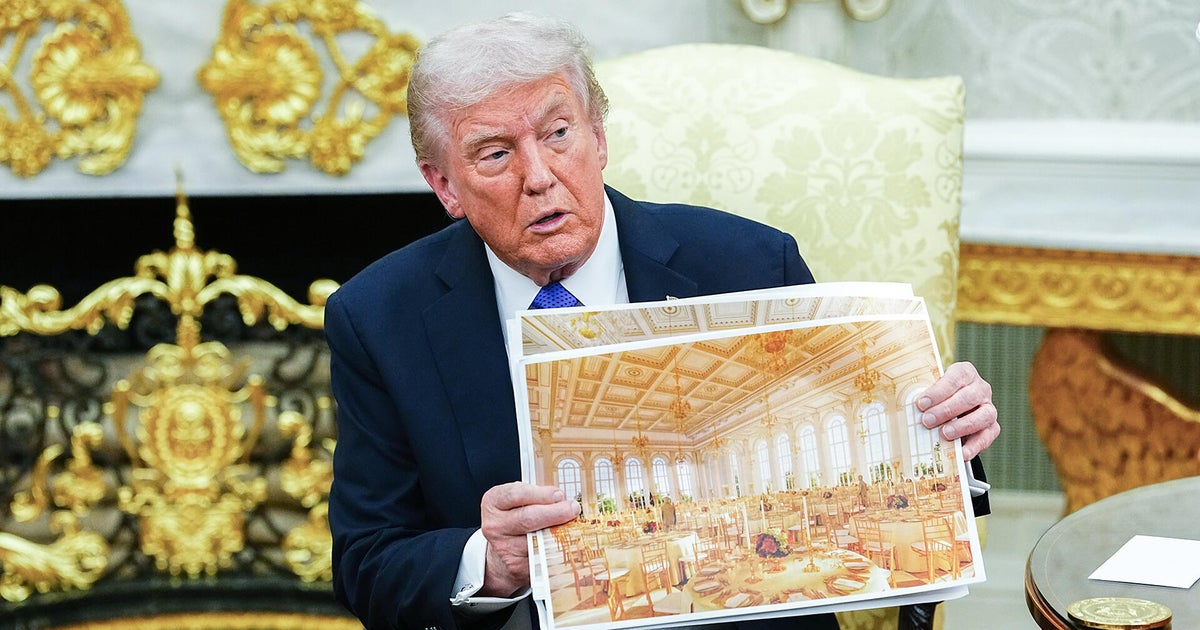Trump says states need to "work out" competing bids for medical equipment for themselves
President Trump on Thursday said states need to work out competing bids for medical equipment among themselves, and continued to blame states for failing to stockpile medical equipment like ventilators. Governors are sounding the alarm that they are bidding against themselves, as well as the federal government, for much-needed medical equipment and supplies.
"Well they have that, and they have to work that out," Mr. Trump said, when asked about what should be done when states are fighting over orders of medical equipment.
Mr. Trump said states "should have been building their stockpiles," adding that the federal government is a "backup."
"We're a backup, we're not an ordering clerk, we're a backup, and we've done an unbelievable job," Mr. Trump said.
Rear Admiral John Polowczyk acknowledged Thursday that AirBridge flights bringing back supplies are for commercial sale, not going directly to states or hospitals. When he was asked about states saying they have to place high bids on those supplies, Polowczyk said "that's normally how things work."
Polowczyk said the administration expects thousands of ventilators to be produced this month, thousands next month, and more in June, but that falls far short of what states have said they'll need.
On Thursday, Vice President Mike Pence announced the White House would soon provide guidance on how those without insurance might be covered for COVID-19 care, saying some of the $100 billion designated for hospitals through the CARES Act might go towards paying for uninsured COVID-19 patients. The Trump administration also expects to have further guidance in the next few days on whether Americans should wear masks in public. The administration has been hesitant to offer such guidance, since hospitals need the masks, but the masks can keep those who are infected with the virus from spreading it.
Just before the briefing, the White House announced that the president again tested negative for COVID-19. The president said he took the test out of curiosity. Mr. Trump also tested negative for the disease in March.
On Friday, small businesses are supposed to be able to apply for loans, and Treasury Secretary Steve Mnuchin said the system will be "up and running" then. But some banks, including Chase, said they are unsure if they can provide the loans starting Friday, as they aren't sure they have enough information from the Small Business Administration. Mnuchin insisted the banks will have all the information they need.
Mnuchin said Americans who don't have direct deposit on file with the IRS can expect their checks within weeks, not months — and for Americans who are "underbanked," Mnuchin said the administration is working with digital companies and pre-paid debit card companies to make sure they get their checks. The CARES Act provides $1,200 for every American adult, and $500 for every child.
Absent from Thursday's briefing was Dr. Anthony Fauci, director of the National Institute of Allergy and Infectious Diseases. As the federal government works to address the coronavirus crisis, Fauci has emerged as one of the most recognized figures among the White House's task force. Federal officials are boosting security for him after threats were made against him, officials from the Department of Justice have confirmed to CBS News.
The Department of Health and Human Services requested that U.S. Marshals deputize a group of agents in the office of the Health and Human Services Inspector General to handle the doctor's protection, and the request was approved by the Department of Justice, the officials said.
When asked about his enhanced security, Fauci told "CBS This Morning" he is focused on the job at hand.
"There's a lot of pressure, I would be foolish to deny that, but that's what I do," he said. "I've been through crises like this before, dating back 37 years from the very beginning of the HIV epidemic. There's a job to do, and we've just got to do it."



